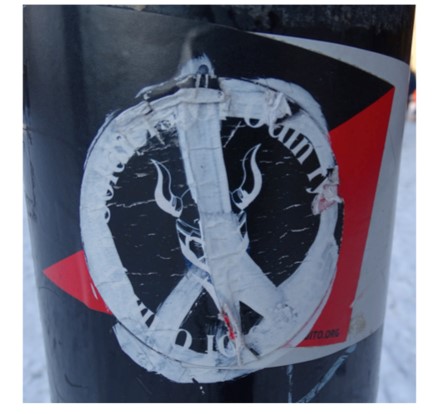Discriminatory landscapes
Sofie Henricson, Associate professor in Scandinavian languages, University of Helsinki: Temporality and dialogicalityin discriminatory linguistic landscapes
Zoom (please register at the latest three days before the lecture)
Abstract
In this presentation, I will discuss the temporality and dialogicality of publicly displayed discriminatory discourses in the transgressive layers of urban linguistic landscapes. The discussion is anchored in a work-in-progress study based on data collected weekly during four consecutive months from three central railway stations in Helsinki, the capital of Finland. More concretely, the data consist of georeferenced photographs of stickers, attached paper notes, and graffiti with a discriminatory agenda, which attack human diversity and construct otherness, but also includes documentation of resistance to these discriminatory practices, such as attaching stickers embracing human diversity or painting over discriminatory signs.
I am interested in how the discriminatory landscapes at these railway stations change over time and on how practices of resistance develop in response to this. In the presentation, I will address the following kinds of research questions: What kinds of discriminatory discourses are visible at central railway stations of Helsinki and how are the discriminatory discourses created? How rapidly do the discriminatory linguistic landscapes of these highly frequented stations change? Are there signs of practices of resistance, e.g. destruction of discriminatory signs or of signs advocating an opposite view? How does this dialogue evolve in place and time?
About the author
Sofie Henricson is an associate professor in Scandinavian languages at the Department of Finnish, Finno-Ugrian and Scandinavian Studies at the University of Helsinki, Finland. She is interested in a broad range of sociolinguistic perspectives on language use and the Swedish language, including interaction research, variational pragmatics, linguistic landscape studies, and language learning and teaching. As regards linguistic landscape studies, she has been interested in sociolinguistic variation in urban linguistic landscapes, the presence and role of minority languages and multilingualism and in how urban spaces are used for promoting ideology.
